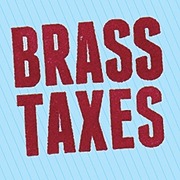I was thinking about forming an LLC or corporation. Is that a good idea?
You and Your Business
I was thinking about forming an LLC or corporation. Is that a good idea?
You don't need an LLC or corporation to be a business. And there aren't always tax advantages for freelancers to forming them. We'll help you figure out if it's going to make a difference on your taxes.
Updated 2 weeks ago
Telling freelancers to start an LLC is unfortunately one of those things that people tend to give advice on without really knowing what they're talking about.
A lot of people who are new to business entities assume it's something they should do to become a legitimate business, and it sure sounds really business-y to have an LLC. Truthfully though, if you are a freelancer earning untaxed income for the work you do, then you're a business, even without all the fancy letters and paperwork (and filing fees).
Why do people do it? One of the biggest reasons an individual freelancer (also called a sole proprietor) might form an LLC is that they're worried about being sued, and an LLC will help limit their liability. (That's actually what LLC stands for: limited liability company.)
Then, for folks who have business partners or employees, or work in certain industries and make well into the six figures, setting up an LLC or corporation can help them do things like split up the profits and risks between partners, pay employees, or pay themselves in ways that improve their tax position.
But beware that the work and costs of starting and maintaining business entities can add up fast. And there can be some significant downsides. For instance, New York City doesn't recognize the existence of S-corporations, so you’re taxed at a C-corp’s rate (about 8%), which negates any tax savings from avoiding self-employment tax on your non-salary distribution. And for S-corporations, C-corporations, and partnerships or multi-member LLCs, you'll have to file a business return, further reducing your savings.
Alternatives to LLCs/corporations for individual freelancers
If you're not in a risky field, and you don't have a business partner, you can still get that sweet, sweet business-y feel by doing one or more of these things:
Applying for an EIN (having an "employer identification number" means you can use that instead of your social security number when you send out W-9 forms to clients)
Setting up a DBA (that stands for "doing business as" and lets you create a company name that you can use instead of your own name). You'll have to do this with your state, and it usually costs some money (less than $100), but is often cheaper and easier than setting up an LLC
Looking into liability insurance for the work you do
Another advantage to a DBA is that you can usually open a business bank account with a DBA in place.
Still have questions about your situation and what makes the most sense? Schedule a consultation by reaching out to info@brasstaxes.com.

